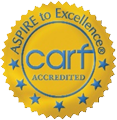The 12 Steps were created by the founders of Alcoholics Anonymous to establish guidelines to overcome an addiction to alcohol. The program gained enough success in its early years for other addiction support groups to adapt the steps to their specific substance or addictive behavior.
There are many 12-step programs for various addictions and compulsive behaviors, ranging from Cocaine Anonymous to Debtors Anonymous—all using the same 12-Step methods.
Although the 12 Steps are based on spiritual principles, many nonreligious people have found the program immensely helpful. The language emphasizes the presence of God as each participant understands God, allowing for different interpretations and religious beliefs.
The 12 Steps Of Alcoholics Anonymous
Because recovery is a lifelong process, there’s no wrong way to approach the 12 Steps as the participant tries to figure out what works best for their individual needs. In fact, most participants find that as they grow in their recovery they will need to revisit some steps or even tackle more than one step at a time. Steps 1, 2, and 3 are considered the foundation of a 12-Step program and are recommended to practice daily.
Here are the 12 Steps as defined by Alcoholics Anonymous:
1. We admitted we were powerless over alcohol–that our lives had become unmanageable.
2. Came to believe that a Power greater than ourselves could restore us to sanity.
3. Made a decision to turn our will and our lives over to the care of God as we understood Him.
4. Made a searching and fearless moral inventory of ourselves.
5. Admitted to God, to ourselves and to another human being the exact nature of our wrongs.
6. Were entirely ready to have God remove all these defects of character.
7. Humbly asked Him to remove our shortcomings.
8. Made a list of persons we had harmed, and became willing to make amends to them all.
9. Made direct amends to such people wherever possible, except when to do so would injure them or others.
10. Continued to take personal inventory and when we were wrong promptly admitted it.
11. Sought through prayer and meditation to improve our conscious contact with God as we understood Him, praying only for knowledge of His will for us and the power to carry that out.
12. Having had a spiritual awakening as the result of these steps, we tried to carry this message to alcoholics and to practice these principles in all our affairs.
The SMART Recovery approach to recovery is summarized in the Four-Point program.
SMART Recovery teaches how to:
1) Enhance and maintain motivation to abstain
2) Cope with urges
3) Manage thoughts, feelings, and behaviors
4) Balance momentary and enduring satisfactions
What does SMART Recovery stand for?
How is SMART Recovery different from Twelve Step programs such as AA or NA?
Children of Chaos AA are Atheists, Agnostics, and Freethinkers of AA who attempt to maintain a tradition of free expression, and conduct meetings where alcoholics may feel free to express any doubts or disbeliefs they may have, and to share their own personal form of spiritual experience, their search for it, or their rejection of it. They do not endorse or oppose atheism or any form of religion. Their only wish is to assure suffering alcoholics that they can find sobriety in AA without having to accept anyone else’s beliefs or having to deny their own.

Our General Health Services
- Medical
- Dental
- Medication Management
- Psychiatric & Behavioral Health
- Evening and Weekend Programming
- Telehealth
- High Complexity Toxicology Labs
- Family Education
- COVID-19 Testing


